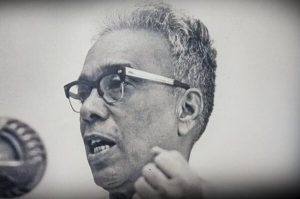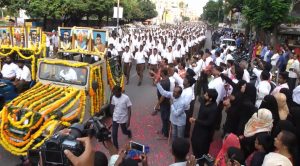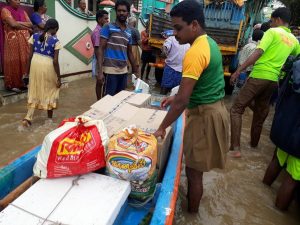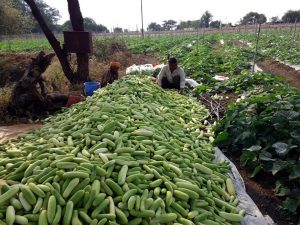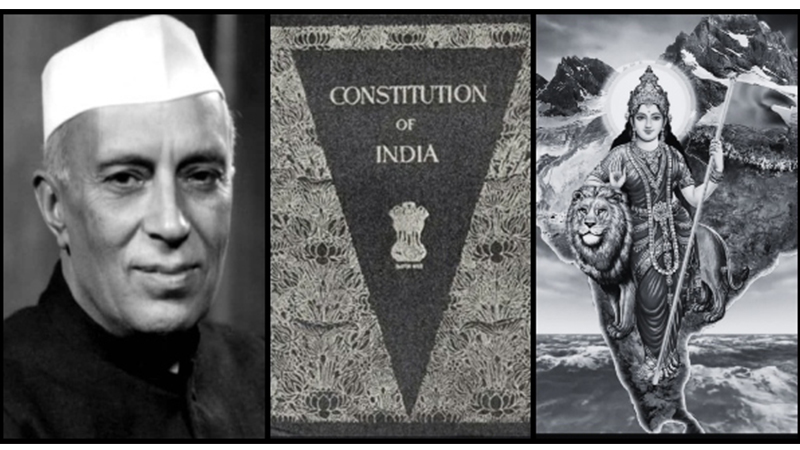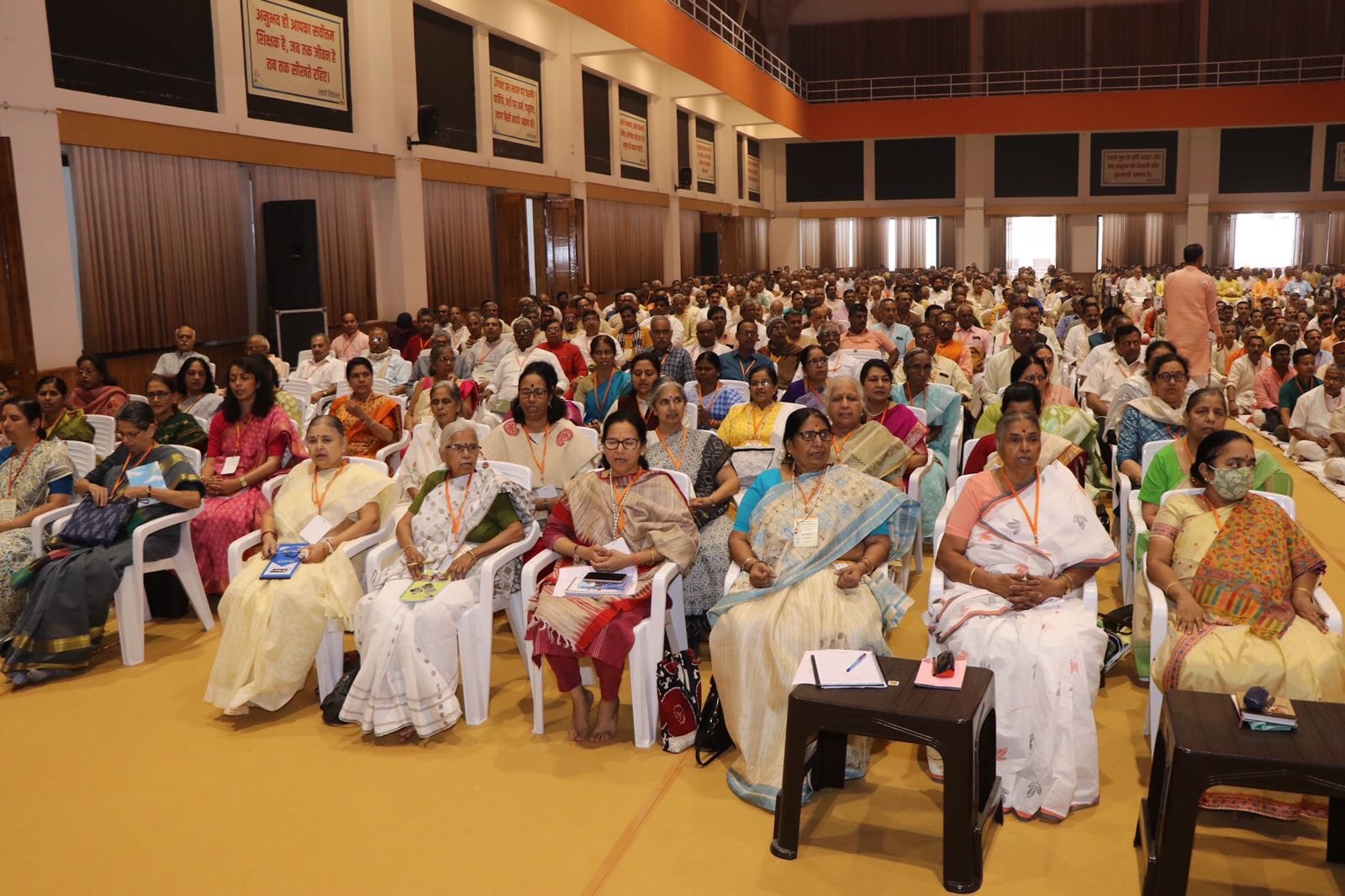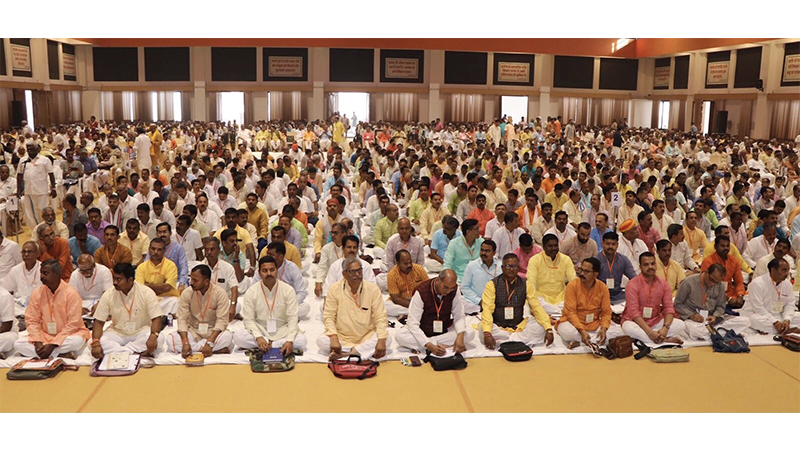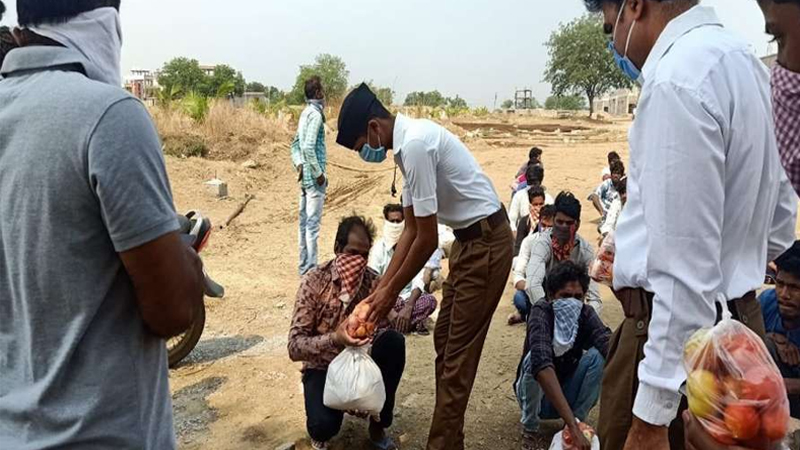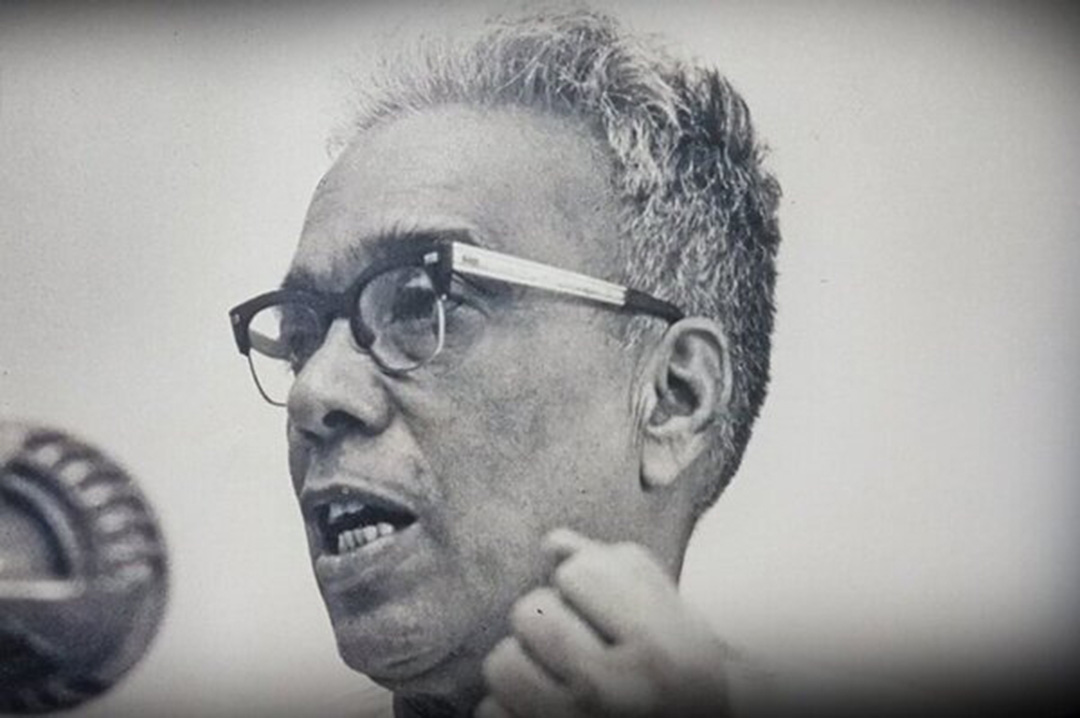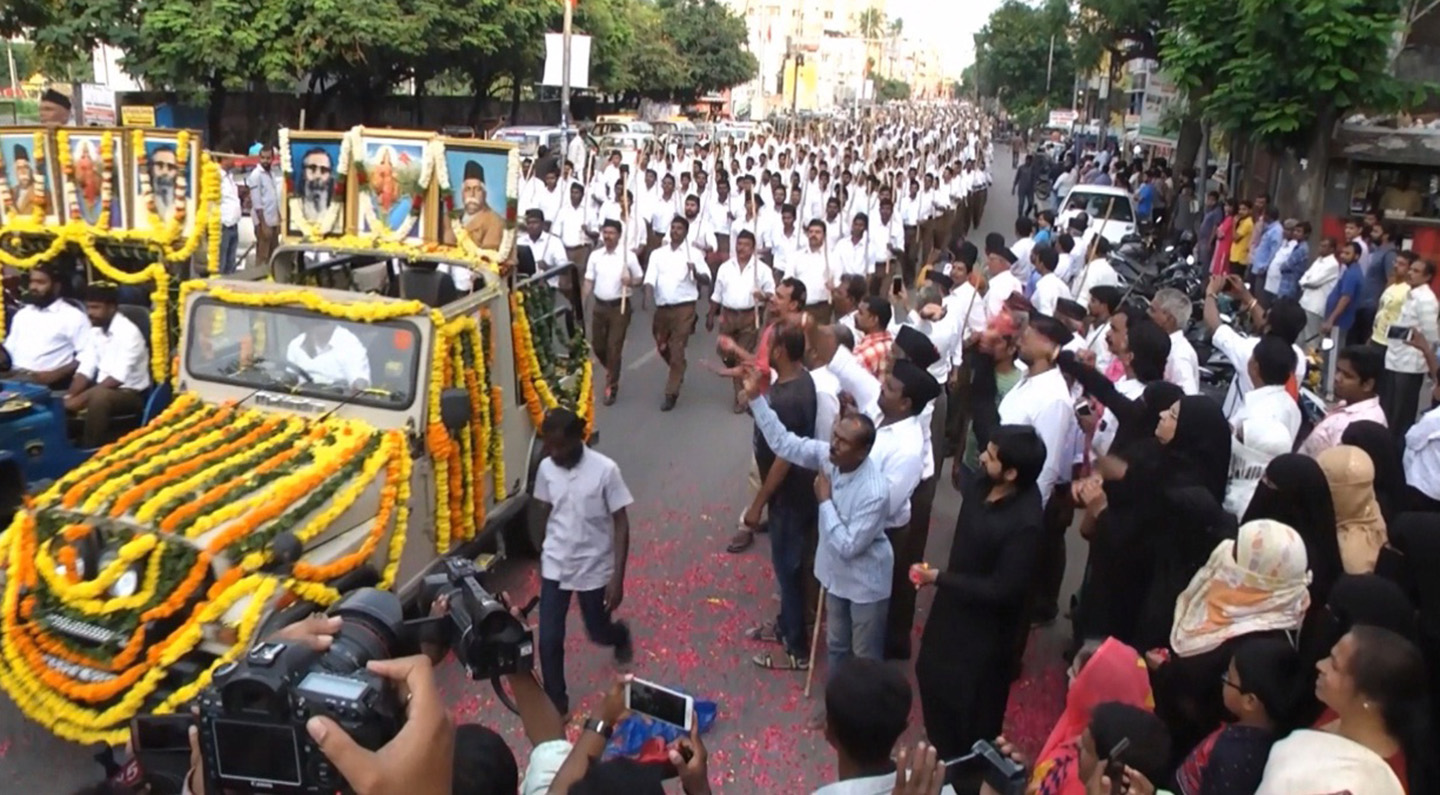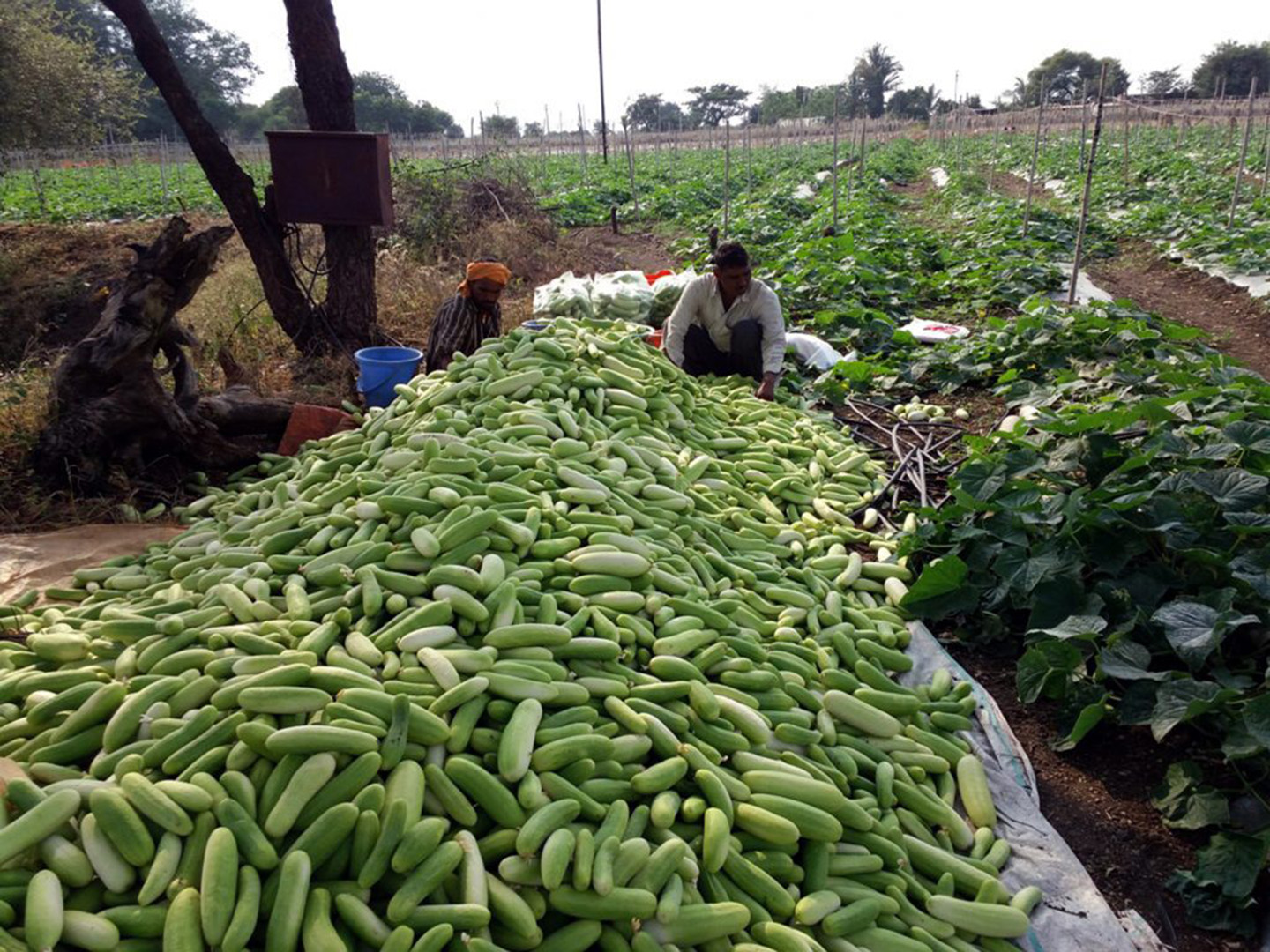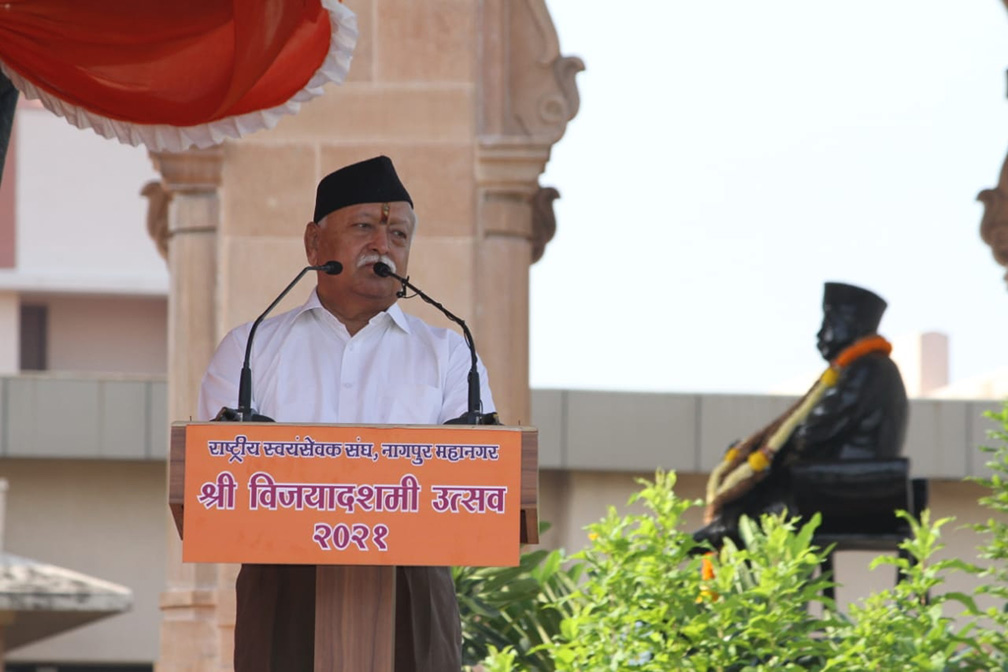Balasaheb Deoras: The Third RSS Chief – A Brief Biography
Updated: February 4, 2023 5:58
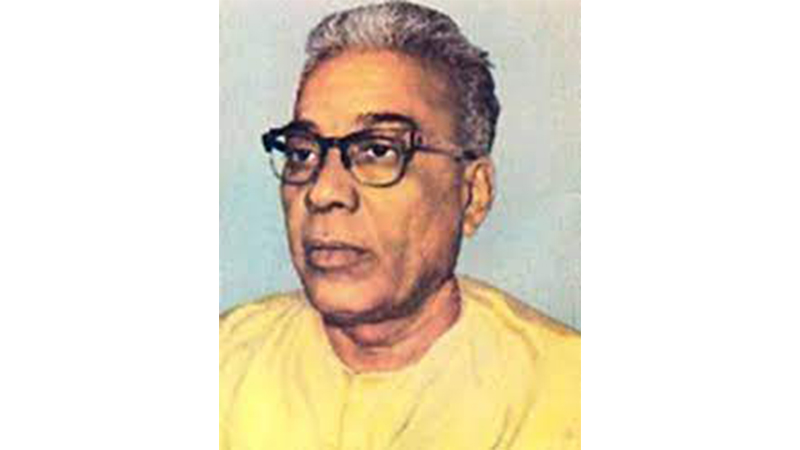
Madhukar Dattatraya Deoras, commonly known as Balasaheb Deoras, was born on December 11, 1915 in Nagpur, Maharashtra to Dattatraya Krishnarao Deoras and Parvathibai. His brother Bhaurao Deoras was also a Pracharak and senior functionary of the RSS.
Balasaheb was educated in New English High School. He matriculated from Berar Board of Secondary Education of the Central Provinces in 1931. Then he took admission in Moris College (now Nagpur Mahavidyalaya). He graduated from the same college and later completed LL.B. degree in College of Law, Nagpur University. He was associated with the RSS right since its inception.
Inspired by Dr. Hedgewar, Balasaheb decided to devote his life for the RSS and became a Pracharak. His first stint, as a Pracharak, was in the pre-partition Bengal.
He was appointed as the Sahsarkaryavaha (Joint General Secretary) of the RSS in 1946. In 1965, he was elevated to the position of the Sarkaryavah (General Secretary). After the demise of the second RSS Chief, Guruji, he became the Sarsanghchalak on June 5, 1973.
Balasaheb’s family hailed from Andhra Pradesh but was settled in Nagpur. He had three siblings – one brother and two sisters. One of the major contributions of the Third RSS Chief was his crusade against untouchability. His declaration, made in 1974, that, “If untouchability is not wrong, nothing in the world is wrong”, fired the imagination of Swayamsevaks and provide a great fillip to the national efforts to fight the menace of untouchability, a major curse of the Indian social system.
An organiser par excellence, he led the spectacular fight against Emergency, imposed by the then Prime Minister Indira Gandhi. The RSS was banned by Gandhi but under Balasaheb’s dynamic and pragmatic leadership, the RSS led the fight against this draconian step from the front despite being put behind bars like several other leaders.
Political commentator Muzaffar Hussain wrote in newspaper article in 1996, “Indian politics experienced its first internal upheaval with the declaration of the Emergency in June 1975. This was the second time RSS was banned during Deoras’ career and the first for him to face in his capacity as the Sarsanghchalak. The whole of India was turned into a veritable jail. I need not repeat what the Sangh had to go through. Balasaheb, however gave it a positive turn. While in jail, he had the opportunity to react with the leaders and activists of many banned Muslim organisations including the Jamaat-e-Islami. As a result, the two parties came closer not only in their thinking and responses but also in their day-to-day dealings. By their conduct, the RSS Adhikaris dispelled the Muslims’ apprehension that the RSS was their enemy. It was the first miracle Balasaheb achieved by giving a positive turn to the Muslim perception of the Sangh. After being acquainted with the ideology of the RSS, hitherto dubbed a body of militant Hindus, leaders of the Jamaat-e-Islami came to conclusion that, barring image-worship. There was no fundamental difference in Islam and Sanatan Dharma. The jail during the Emergency became a turning point where the impasse between the two communities came to an end and paved the way for a dialogue.”
An online article published in 2012 at one of the RSS affiliated websites explained working style of Balasaheb Deoras: “Gifted with a profoundly critical intellect, Balasaheb gave a much-needed fillip to the process of a direct dialogue with workers at different levels. He himself would sit for long hours seeking answers to a number of doubts arising in the minds of Swayamsevaks. This twoway intellectual feedback proved very useful in firming up the conviction of the rank and file of the Sangh Parivar. Such an organisational direction was particularly needed in view of the fast-changing intellectual agenda at the national level, with the phenomenal rise of Hindu awareness and Hindutva coming up to centre stage.”
Balasaheb continued as Sarsanghachalak till 1994 after which he stepped down due to ill health paving the way for Prof. Rajendra Singh to replace him. For the first time in the RSS, a Sarsanghachalak had announced a successor when alive. Earlier the practice was of a ‘will’ being made public posthumously.
After continuous deterioration in health, Deoras passed away on 17 June 1996
(Source – Anand Arun, Know About RSS, Prabhat Prakashan, Second Edition)
